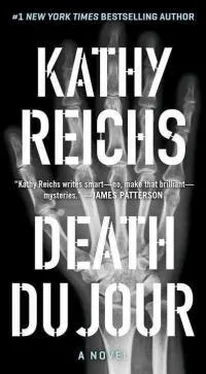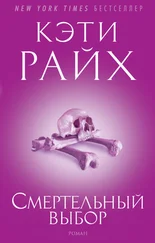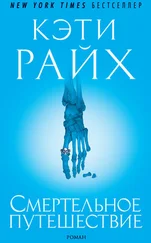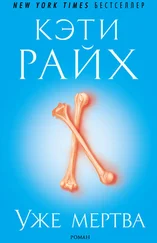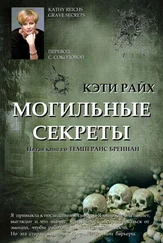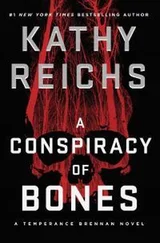“A manic phase?”
“C’est ça . She seemed to go up and down so quickly.”
“I’m so glad she’s better.”
“Yes, God be praised. Professor Jeannotte’s death hit her hard. Please, Dr. Brennan, for Anna’s sake, I must know what went on with that woman.”
I took a deep breath. What to say?
“Professor Jeannotte’s troubles stemmed from her love for her brother. Daniel Jeannotte spent his life organizing one cult group after another. Daisy believed he was well intentioned and wrongly scorned by mainstream society. Her career in American academia was compromised following complaints to her university by parents of students she had steered to Daniel’s conferences and workshops. She took a leave from teaching to do research and write, and resurfaced in Canada. For years she continued to be supportive of her brother.
“When Daniel hooked up with Elle, Daisy began to lose confidence. She thought Elle was a psychopath, and a struggle developed between the two women for Daniel’s allegiance. Daisy wanted to protect her brother, but was afraid of something catastrophic.
“Jeannotte knew that Daniel and Elle’s group was active on campus, though the university had tried to drive them off. So when Anna had her encounter with them, Daisy wanted to monitor them through Anna.
“Daisy was never a recruiter for the group. She learned that cult members had infiltrated the counseling center, looking for students to befriend. My sister was recruited that way at a community college in Texas. This agitated Daisy all the more because she feared being blamed because of the episode in her past.”
“Who is this Elle?”
“Her real name is Sylvie Boudrais. What we know is patchy. She’s forty-four, born in Baie Comeau of an Inuit mother and québécois father. Her mother died when she was fourteen, her father was an alcoholic. The old man beat her regularly and forced her into prostitution when she was fourteen. Sylvie never finished high school, but she tests in the stratosphere for IQ.
“Boudrais disappeared after dropping out of school, then showed up in Quebec City sometime in the mid-seventies offering psychic healing for a moderate fee. She acquired a small following, and eventually became the leader of a group that took up residence in a hunting lodge near Ste-Anne-de-Beaupré. There was constant money pressure, and problems developed because of underaged members. A fourteen-year-old turned up pregnant, and the parents went to the authorities.
“The group disbanded and Boudrais moved on. She did a brief stint with a sect called the Celestial Pathway in Montreal, but left. Like Daniel Jeannotte, she wandered from group to group, turning up in Belgium around 1980, where she preached a combination of shamanism and New Age spiritualism. She established a band of followers, including a very wealthy man named Jacques Guillion.
“Boudrais had met Guillion early through the Celestial Pathway, and saw him as the answer to a group’s cash flow problems. Guillion fell under her spell, and was eventually persuaded to sell his properties and turn over his assets.”
“No one objected?”
“The taxes were paid and Guillion had no family, so no questions arose.”
“Mon Dieu.”
“In the mid-eighties the group left Belgium for the U.S. They established a commune in Fort Bend County, Texas, and Guillion shuttled back and forth to Europe for several years, probably transferring money. He last entered the U.S. two years ago.”
“What happened to him?” Her voice was small and tremulous.
“The police think he’s buried somewhere on the ranch.”
I heard the swish of fabric.
“Jeannotte’s brother met Boudrais in Texas and was captivated. By then she was calling herself Elle. That’s also where Dom Owens came into the picture.”
“He is the man from South Carolina?”
“Yes. Owens was a small-time dabbler in mysticism and organic healing. He visited the Fort Bend ranch and was infatuated with Elle. He invited her to the South Carolina compound on Saint Helena, and she seized control of his group.”
“But it all sounds so harmless. Herbs and spells and holistic medicine. How did it come to violence and death?”
How does one explain madness? I didn’t want to discuss the psychiatric evaluation lying on my desk, or the rambling suicide notes found at Ange Gardien.
“Boudrais read extensively, especially philosophy and ecology. She was convinced the earth would be destroyed, and before that happened she would take her followers away. She believed herself to be the guardian angel of those devoted to her, and the lodge at Ange Gardien was the jumping-off point.”
There was a long pause. Then,
“Did they really believe it?”
“I don’t know. I don’t think Elle was willing to trust entirely to the power of her oratory. She relied in part on drugs.”
Another pause.
“Do you think they believed enough to be willing to die?”
I thought of Kathryn. And Harry.
“Not all of them.”
“It is mortal sin to orchestrate the loss of life, or even to hold another living soul as a captive.”
A perfect bridge.
“Sister, did you read the information I sent regarding Élisabeth Nicolet?”
The pause at her end was longer. It ended with a deep sigh.
“Yes.”
“I’ve done a lot of research on Abo Gabassa. He was a well-respected philosopher and public speaker, known all over Europe, Africa, and North America for his efforts to end the slave trade.”
“I understand that.”
“He and Eugénie Nicolet sailed for France on the same ship. Eugénie returned to Canada with an infant daughter.” I took a breath. “The bones don’t lie, Sister Julienne. And they are not judgmental. From the moment I looked at Élisabeth’s skull, I knew she was a person of mixed race.”
“That doesn’t mean she was a prisoner.”
“No, it does not.”
Another pause. Then she spoke slowly.
“I agree that an illegitimate child would not have been well received in the Nicolet circle. And in those days a mixed-race black baby might have been impossible. Perhaps Eugénie viewed the convent as the most humane solution.”
“Perhaps. Élisabeth may not have chosen her own fate, but that doesn’t diminish her contribution. According to all accounts, her work during the smallpox epidemic was heroic. Thousands may have been spared by her efforts.
“Sister, are there any saints from North America whose bloodlines included Native American, African, or Asian ancestry?”
“Why, I’m not sure.” I heard something new in her voice.
“What an extraordinary role model Élisabeth could be to people of faith who suffer prejudices because they were not born Caucasian.”
“Yes. Yes, I must speak to Father Ménard.”
“May I ask you a question, Sister?”
“Bien sûr.”
“Élisabeth appeared to me in a dream and spoke a line I cannot place. When I asked who she was she said, ‘All in robe of darkest grain.’ ”
“ ‘Come pensive nun devout and pure; Sober steadfast and demure; All in robe of darkest grain; Flowing with majestic train.’ John Milton’s Il Penseroso.”
“The brain is an amazing archive,” I said, laughing. “It’s been years since I read that.”
“Would you like to hear my favorite?”
“Of course.”
It was a lovely thought.
When we hung up I looked at my watch. Time to go.
During the drive I turned the radio on and off, tried to identify a rattle in the dashboard, and just drummed my fingers.
The traffic signal at Woodlawn and the Billy Graham Parkway took a lifetime.
This was your idea, Brennan.
Right. But does that make it a good one?
Читать дальше
